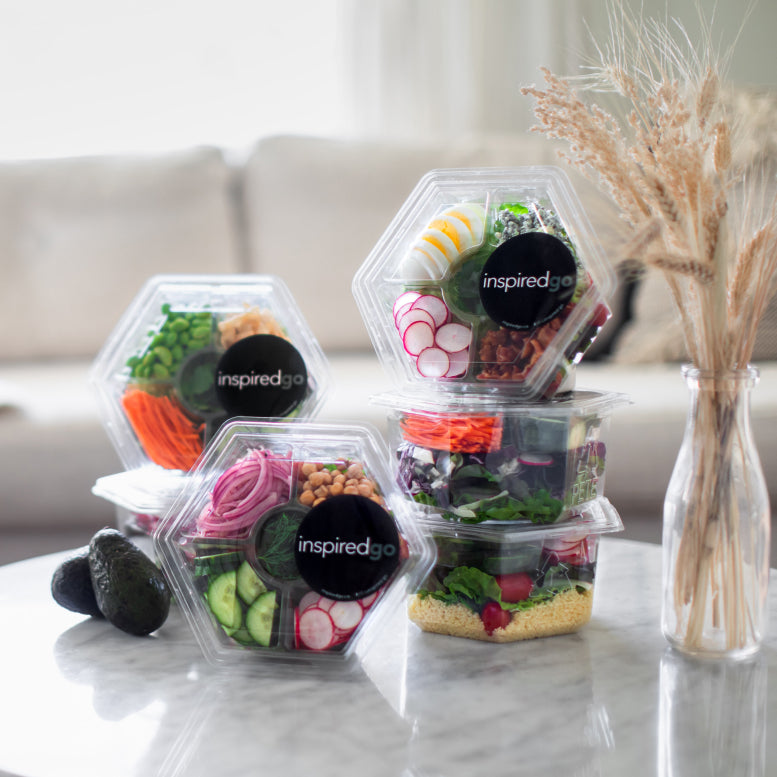What's The Difference Between Vegetarian And Vegan Diets?
Table of Contents
1. Understanding the Distinctions: Vegetarian vs. Vegan Diets
2. How Do You Get Enough Protein on a Vegetarian Diet?
3. How Does a Vegetarian Diet Support Heart Health?
4. Why Is a Vegetarian Diet a Smart Choice?
1. Understanding the Distinctions: Vegetarian vs. Vegan Diets
In the realm of plant-based eating, two terms often stand out: vegetarian and vegan diets. Though they share similarities in prioritizing plant-based foods, their distinctions are significant. A vegetarian diet typically eliminates meat, poultry, and fish, but may include animal-based products such as eggs, dairy, and honey. On the other hand, a vegan diet takes it a step further, excluding all animal-derived products, making it purely plant-based. This means a vegan would not consume dairy products, eggs, or honey, in addition to not eating meat, poultry, or fish. Both diets have variations, with some vegetarians choosing to consume dairy but not eggs, and some vegans opting to exclude certain plant foods due to ethical reasons. Regardless of the choice between vegetarianism or veganism, both diets can contribute to balanced nutrition when thoughtfully planned and can play a part in promoting sustainable food practices.
Order fresh salads today →


2. How Do You Get Enough Protein on a Vegetarian Diet?
Ensuring sufficient protein intake on a vegetarian diet is achievable with a variety of protein-rich plant-based foods such as lentils, chickpeas, tofu, quinoa, tempeh, and dairy products. These ingredients provide essential amino acids needed for muscle maintenance, energy production, and overall health. Vegetarian meal delivery services address protein needs by designing meals rich in these plant-based protein sources, ensuring balanced macronutrient profiles. Pre-portioned servings prevent overconsumption while guaranteeing adequate protein intake. Nutritional transparency, including protein content per serving, helps customers track their daily requirements effectively. By removing the challenges of meal planning and preparation, vegetarian meal delivery services provide a reliable way to meet protein goals without hassle.
Choose your salads and schedule delivery →
3. How Does a Vegetarian Diet Support Heart Health?
A vegetarian diet is known for its cardiovascular benefits, including reduced cholesterol levels, lower blood pressure, and decreased inflammation. Vegetarian meal delivery services prioritize heart-healthy ingredients like leafy greens, whole grains, nuts, seeds, and olive oil in their pre-prepared meals. These ingredients are rich in fiber, antioxidants, and essential fatty acids, which contribute to improved heart health. Subscription services ensure consistent access to balanced meals, eliminating reliance on unhealthy or processed foods. Transparent nutritional labeling provides clarity on sodium, fat, and calorie content, allowing customers to make informed choices. Vegetarian meal delivery supports long-term heart health with structured, nutrient-dense meal plans.
Get fresh salads and snacks delivered →
4. Why Is a Vegetarian Diet a Smart Choice?
Inspired Go emphasizes the health benefits of vegetarian diets by delivering balanced, ready-to-eat vegetarian meals crafted with precision. These meals include nutrient-dense ingredients such as lentils, chickpeas, tofu, and leafy greens, providing essential vitamins, minerals, and plant-based proteins. Each dish is pre-portioned to ensure calorie control and nutritional balance, while transparent labeling offers clarity on macronutrient composition. Subscription plans allow customers to receive regular deliveries, eliminating gaps in their meal routines. Inspired Go simplifies healthy eating by offering convenient access to balanced vegetarian meals, making it easier for customers to enjoy the benefits of a plant-based diet without the need for meal prep or planning.
Try our fresh, ready-to-eat salads →
Frequently Asked Questions
The key difference between vegan and vegetarian diets lies in the exclusion of animal products. Vegetarians avoid meat, poultry, and fish but may consume animal-derived products like eggs, dairy, or honey. Vegans, on the other hand, exclude all animal products, focusing solely on plant-based foods. Veganism is often a lifestyle choice, avoiding animal products in all forms, including clothing and cosmetics.
A vegan diet consists entirely of plant-based foods, including fruits, vegetables, grains, nuts, seeds, and legumes. It excludes all animal-derived products, such as meat, fish, dairy, and eggs. This diet emphasizes nutrient-dense, whole foods, though processed vegan alternatives are available. A vegan diet, when well-balanced, supports good health and environmental sustainability, making it popular for ethical, health, and ecological reasons.
Not all vegan diets are gluten-free. While veganism excludes animal products, gluten is a protein found in wheat, barley, and rye, which are plant-based and commonly included in vegan meals. To maintain a vegan and gluten-free diet, focus on naturally gluten-free foods like fruits, vegetables, rice, quinoa, and gluten-free grains. Always check labels for hidden gluten in processed vegan foods.
On a vegan diet, you can enjoy a wide variety of plant-based foods, including fruits, vegetables, legumes, nuts, seeds, whole grains, and plant-based dairy alternatives. Popular vegan dishes include stir-fries, salads, grain bowls, soups, and curries. Incorporating fortified foods or supplements ensures you meet nutrient needs like B12, iron, and omega-3s, making the diet balanced and enjoyable.
A vegan diet can be very healthy when balanced and diverse. It’s rich in fiber, vitamins, and antioxidants, while being lower in saturated fat and cholesterol. These factors contribute to better heart health, weight management, and reduced risk of chronic diseases. However, careful planning is essential to ensure adequate intake of nutrients like vitamin B12, iron, and protein for overall health.

